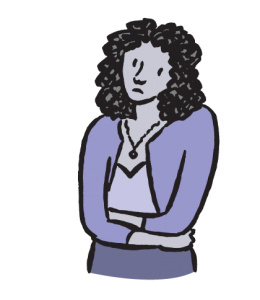
The real difference is that in diverticulosis doctors can see the damage, thus giving you the impression that they know why you are suffering. Nothing could be further from the truth.
In reality people suffering from diverticulitis are no better off than those diagnosed with IBS when it comes to providing you with a solution to your problem. And both conditions are treated in the same manner.
What is Diverticulitis?
Diverticulitis is the diagnosis given to people who develop inflammation as a result of diverticulosis. Diverticulosis is presence of weak pouches in the colon called diverticula. Diverticulosis is generally diagnosed from a colonoscopy or a barium contrast x-ray.
It is estimated that by the age of 70 at least 50% of the American population has developed diverticulosis. Diverticulosis by itself does not cause symptoms, but as a result of it some people will develop diverticulitis and thus pain in the lower abdomen often associated with diarrhea.
What Causes Diverticulosis?
Diverticulosis is generally thought to be caused by excessive pressure in the colon, which may be combined with a weakening of the colon due to age, inflammatory damage, or both. This pressure is likely directly associated with constipation, although many people don’t recognize themselves as having constipation. What many people have come to think of as normal bowel habits may be far from healthy or normal.
The prevailing theory is that a lack of fiber in the diet ultimately leads to the development of weak pouches in the colon. This is basically another way of saying that people don’t eat enough vegetables and don’t have as healthy of a diet as they should. How many other conditions can you think of that are caused by the same problem? Also, like many chronic conditions, the incidence is far higher in western countries than in the rest of the world, and people from other countries who switch to a western diet have a much higher incidence of diverticulosis.
How is Diverticulitis Treated?
Diverticulitis is treated in the same way that IBS is treated. Patients are encouraged to increase their intake of fiber and water. If a fever develops, then they are given antibiotics for the infection.
Unfortunately, a significant number of people with diverticulosis develop so much damage to their colon that they require surgery. Surgery is performed to remove the damaged portion of the colon, and in some cases results in the removal of the entire colon.
Although this resolves the diverticulosis, it doesn’t address the original cause of the damage. And in many cases, people continue to suffer from abdominal pain and other digestive symptoms.
The real issue remains: Why was there so much damage and inflammation in the first place?
The answer is usually far more complicated than a simple lack of fiber or water. The same issues that cause inflammation and digestive symptoms in IBS also cause problems in diverticulosis. The two primary areas of concern that need to be addressed are food allergies and imbalances in the ecosystem of the digestive tract. These are complex issues and are almost never addressed properly.
Successfully treating diverticulitis remains a key component of what we do at the IBS Treatment Center and is identical to our approach to IBS. To learn more about our approach, including a wealth of information about food allergies as well as using DNA technology to assess the microbial environment of the digestive tract, please visit our website at IBSTreatmentCenter.com.

Dr. Wangen is the founder and medical director of the IBS Treatment Center, the award winning author of two books, and a nationally recognized speaker on digestive disorders. He has been on ABC, NBC, and Fox as well as public radio, and was named one of Seattle’s Top Doctors by Seattle Magazine.

